Nut 🌰 Milks 🥛
Most white people love a bit o' dairy in their day! Yet research shows that nut milk is better for mother earth — if not for you! But how to decide which one to imbibe? Bondi's cafe scene shows there's a variety of choices available …
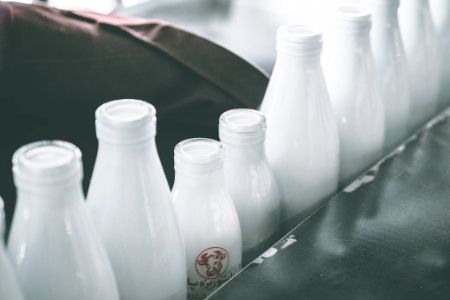
Plus, plant milk — like any commercial crop — can be detrimental if not grown sustainably. What are the effects on the environment, the developing world, carbon footprints and water usage? It's equally important to factor in effects on individuals, communities and their economies.
The good old The Guardian has an introductory guide to plant based milks. Because it's a publication that takes in real science (not ra-tarded reactionary clap-trap) it explores some of the downsides to the move away from animal-based dairy. Lets look at some of the examples …
Almond Milk 🫵
Almond milk is popular (warm with honey before bed, almond milk lattes or iced almond milk) but its production places pressure on bees and their keepers. California is the biggest producer but they kill and stress billions of bees while draining the water table. Also, during ongoing droughts, the capitalist ‘ethic’ kicks in and farmers enlarge acreage as prices go up even though the water table goes down more. There are also lying lobbyists hard at work.
We don't like almond milk's slightly bitter-bland taste.
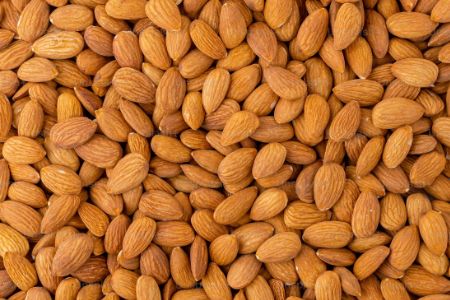
Coconut Milk 🫵
This is one of the sweeter options but that has led to deforestation and exploitation of workers in the Philippines, Indonesia and India where they're paid less than one dollar for a day's work. And rainforests are sacrificed to satisfy global demand and plantation owner profits. As a counter to these impacts purchase coconut products that are certified as ‘Fair Trade’.
We find coconut milk a bit watery and sweet.
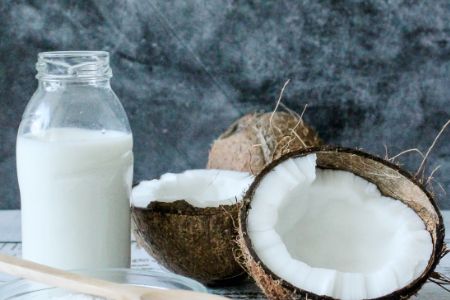
Rice Milk 🫵
Commercially produced rice milk makes more greenhouse gas (rice paddy bacteria produce methane) than any other plant milk and it has poor nutritional value. It also requires huge amounts of water and its associated nitrogen heavy fertiliser useage pollutes waterways — so maybe one to avoid.
We find rice milk a bit watery.

Hazelnut Milk 🫵
Hazelnuts don't appear to have as many negative environmental impacts as other options and hazelnut trees are good carbon sequesters. Another bonus is that they're pollinated by wind — not by bees. Also, they're more tolerant of moister climates so hazelnuts require less water when growing.
We'd like to try hazelnut milk.
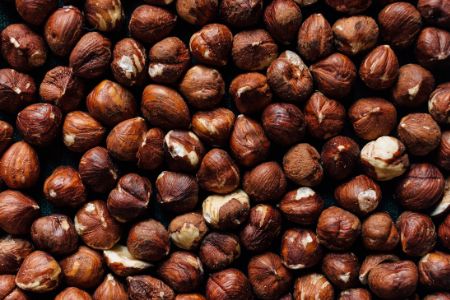
Hemp & Flax Milk 🫵
There are also some so-called ‘niche’ options like flax and hemp seeds which produce nutrient-rich — protein and good fat — milks. They aren't resource hogs either — requiring smaller land areas to grow in.
We've never tried either!
Soy Milk 🫵
In terms of protein levels, soy is close dairy. But, the enormous amounts of soybeans grown world-wide go to feeding livestock for dairy and meat production. Rainforests have disappeared in the Amazon and Indonesia in order to satiate commercial demand so it's better to buy locally made — if possible.
We find soy milk very nice.
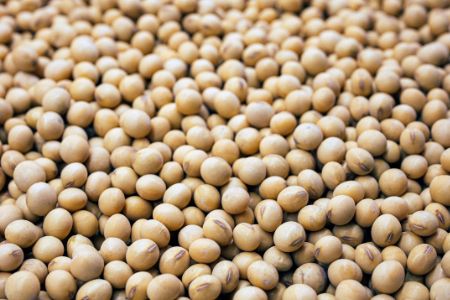
Oat Milk 🫵
This option does well on sustainability measurements and oats are plentiful already — there's no harm done in taking them away from animal feed. They grow in cool climates so less water is used in production also and they don't require any rainforests to be burnt down. The main drawback seems to be the presence of pesticides like Roundup which contains glyphosate — a possible carcinogen — common in monoculture agriculture.
We find oat milk yummy.
Regardless of which option you chose, it'll be better (overall) than methane emitting, land clearing dairy. 👍
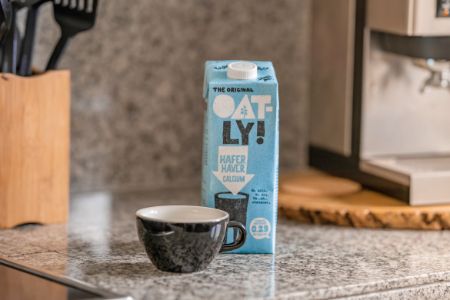
- ↜ Previous: Dutton 🐕 Trumps 🐇 Albanese
- ↝ Next: Twitter 🐦 Bird 💀 Flu